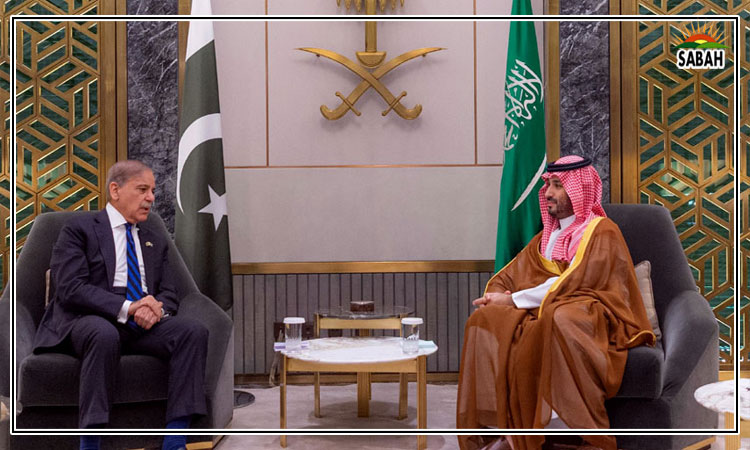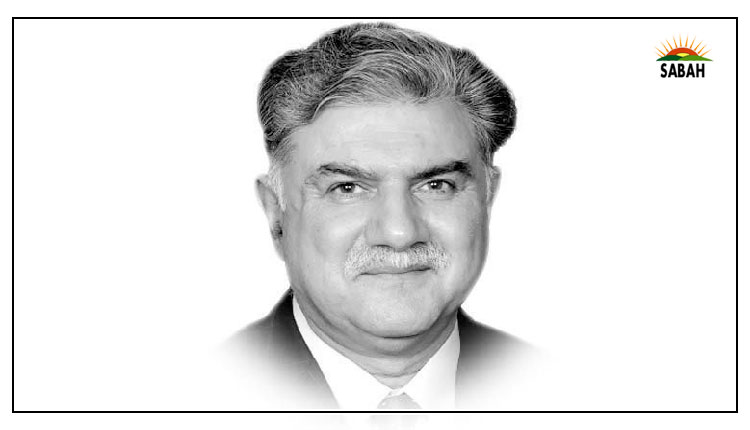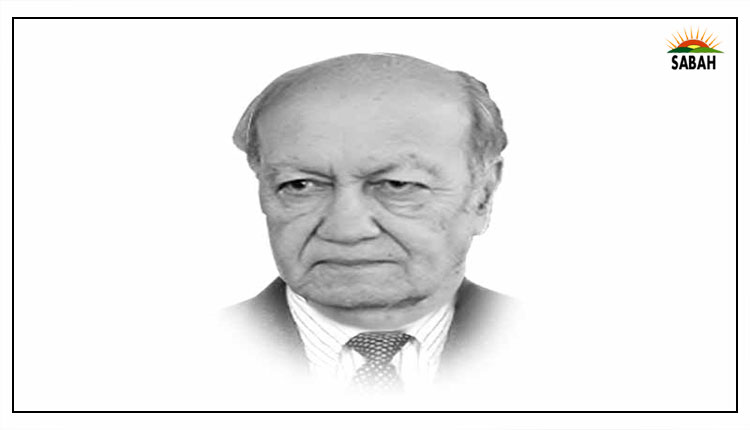Focusing on foreign and domestic policies …… Talat Masood
Pakistan’s turn to host the Shanghai Cooperation Organisation (SCO) summit has brought leaders of China, Russia, India, Bangladesh, Sri Lanka and several Central Asian States to Islamabad. Apart from the formal sessions and meetings, the Conference provides a valuable opportunity for delegates of these countries to exchange views on the sidelines and promote their country’s bilateral and core interests. It could also be a forum to mend fences, reduce tension among member nations and explore avenues for further strengthening the relationship.
While looking at SCO, it is interesting to look at other major union of nations. The European Union, is a supranational political and economic union of 27 member states. The Union has a total area of 4,233,255 km and a population of over 450 million. Its GDP is estimated to be $26.64 trillion (PPP), representing around one-sixth of the global economy. Germany has the biggest national GDP of all EU countries followed by France and Italy.
The Union of South American Nations (UNASUR), founded in 2008, is an intergovernmental regional organisation. It includes all 12 independent South American states – Argentina, Bolivia, Brazil, Chile, Colombia, Ecuador, Guyana, Paraguay, Peru, Surinam, Uruguay and Venezuela. It has not been very successful due to differences between member nations. In particular, political differences and rivalry between Brazil and Argentina has weakened the organisation. Fear of domination by these two major powers has been another important reason for the other member states to be cautious.
When SAARC was conceived it had similar aims as that of European Union or the Union of South American Nations (UNASUR). It was perhaps too ambitious a goal considering the adverse relationship between India and Pakistan and the lukewarm attitude of former prime minister of Bangladesh Sheikh Hasina towards Pakistan. It was a serious barrier in normalising ties with Bangladesh. However, with Sheikh Hasina having had to resign because of a strong political movement against her and a new PM sworn in, Pakistan and Bangladesh are likely to normalise and improve relations. Dr Muhammad Yunus, a renowned economist, Nobel Prize winner, politician and civil society leader, played a critical role in the removal of Sheikh Hasina. He probably could have succeeded Hasina as the Prime Minister but considering his age and other factors he wisely decided to serve as chief adviser of the interim government. Hopefully, with these major changes in the top leadership of Bangladesh, relations with Pakistan that have remained frozen are expected to improve. Equally important would be to increase trade and commerce and ease travel between the two countries.
A normal stable relationship between Pakistan and India is critical for the two countries and the region. Unfortunately, the opposite has been the case for most of the time since the two countries achieved their independence in 1947. The relationship for the last few years has been practically frozen as it seems to be the deliberate policy of PM Modi to isolate and weaken Pakistan. But hurting Pakistan and soiling its reputation also has adverse consequences for India and the region. India’s image has suffered and certainly the benefits that would have accrued through increased mutual trade, tourism and some reduction in defence expenditure have not been possible.
Pakistan counters India’s hegemonic designs apart from strengthening its defence and strategic assets by getting closer to Beijing and strengthening ties with the Muslim countries. China’s influence and involvement with South Asian countries has increased over the years. It has focused on economic integration and enhancing political clout in the region.
There have been numerous attempts to improve the relationship, notably the Shimla summit, the Agra summit and the Lahore summit, as well as various peace and co-operation initiatives. Despite those efforts, relations between the countries have remained frigid, following repeated acts of cross-border terrorism.
The United States, China, the European Union and other friendly nations should encourage Pakistan and India to engage in dialogue. It is not surprising that the US finds the inimical relationship between the two south Asian neighbours against its broader strategic interests. The US would like Pakistan and India to normalise their relations, thereby helping India to enhance its economic power and political influence to counter growing Chinese influence in the region and globally.
It would be wrong to assume that China is against Pakistan and India normalising their relations. It does not serve its broader strategic and economic interests. For China, India is a major export destination and the India-China trade is on the rise, at a rate of 9.6% annually. In 2022, China’s exports to India were $110 billion, with main products being computers, integrated circuits and broadcasting equipment, according to the data available. And India’s exports to China the same year were $15.38 billion, with refined petroleum and iron ore being the main products.
It is interesting to note that despite political differences and strategic rivalry, the China-America, China-India and China-Taiwan trade and commercial relations continue to grow, benefitting both nations. The strong economic and trade relations have contributed significantly to maintaining a stable world order. There are lessons for Pakistan and India to draw from this. If they had remained engaged in trade and commercial activities, there would have been visits of businessmen and entrepreneurs seeking new opportunities. It would have contributed to easing tensions while also opening avenues for exports and imports, thereby giving a boost to their economies.
Personalised politics that has become the norm should be avoided and instead critical national issues should be seriously addressed in the national assembly and Senate. The security situation demands special attention. It cannot be left to the army leadership only. Regional and global developments especially those in the Middle East have consequences and need to be closely monitored.
It is to be seen if Modi in his third term as prime minister will like to normalise relations with Pakistan. Nonetheless, Pakistan leadership’s best course of defending the country’s core interests lies in strengthening it internally. The focus has to be on improving the state of economy and taking effective measures to reduce dependence on IMF and foreign assistance.
Courtesy Express Tribune












